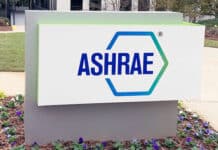 Youngsters read significantly more and comprehended/retained significantly more as the result of two innovative pilot projects; one in Newark, NJ, the other in Houston, TX. Local engineering firms sponsored both projects as part of the Engineering Better Readers program developed by the Engineers’ Leadership Foundation.
Youngsters read significantly more and comprehended/retained significantly more as the result of two innovative pilot projects; one in Newark, NJ, the other in Houston, TX. Local engineering firms sponsored both projects as part of the Engineering Better Readers program developed by the Engineers’ Leadership Foundation.
According to Foundation President Gerald J. Salontai, P.E., the two engineering firms worked closely with school administrators and teachers, purchasing several thousand dollars’ worth of toys, games, sports equipment, and electronics that served as incentives. The more students read and retained— as verified by independent testing—the more points they earned. They then used those points to “purchase” the incentives.
Salontai noted, “Engineers are problem solvers. Usually we think in terms of technical solutions to technical problems. In this case, however, the problem was getting kids to read, and that’s a serious problem indeed. Studies show that kids who fail to master reading skills by third grade have learning difficulties later and are far more likely to drop out before high-school graduation.”
Birdsall Services Group, a multidisciplinary engineering firm headquartered in Sea Girt, NJ, sponsored an Engineering Better Readers Program for grades K-3 at the Camden Street School in Newark, NJ. From Fall 2010 to Spring 2011, students participated in 67 individual Accelerated Reader program studies, each study providing test results for an entire class, including general education classes and those for special needs students.
On average, students showed an 84% reading test improvement; in 31 of the 67 tests, students demonstrated a 100% reading improvement. Additional findings, based on changes between Fall 2010 to Spring 2011, were:
- 96.4% of Grade 3 tests demonstrated improvement with 70% achieving a 100% improvement;
- 76% of Grade 2 tests improved;
- 87% of Grade 1 tests improved; and
- 90% of Kindergarten tests improved.
Engineering honor students from the New Jersey Institute of Technology (NJIT) served as mentors one day a week, encouraging students to read.
Fugro Consultants, Inc., an international geoprofessional consultancy, sponsored Engineer Better Readers at Longfellow Elementary in Houston, TX. (Fugro’s U.S. operations are based in Houston.) There, the children who read the most also improved their reading comprehension and retention, with 57% of them showing growth on the Stanford Achievement Test Series, Tenth Edition (Stanford 10). According to the school, “These students were highly motivated to achieve at higher levels because they truly wanted to earn points every time they took an Accelerated Reader test.”
According to the Foundation’s program director, Patty Bain Bachner, “Powerful incentives are needed to encourage kids to read. Then, once the kids experience the joys of reading, going for the points is a pleasurable challenge. Kids were reading on the buses to and from school, during lunch, and at recess. We believe that the addition of mentors can magnify the overall effect, because mentors give the kids an extra incentive to read. The kids want to impress their mentors with their achievement and talk with them about what they’ve read.”
Bachner indicated that the two engineering firms have both renewed their support for the 2011-12 school year, with additional pilots being considered in four to five other locations. She said that the Engineering Better Readers program focuses on elementary schools where a high proportion of students receive free or reduced price lunches, “because these are the kids most at risk and who have the most to gain. A secondary objective of the program is interesting kids in engineering as a career, not by urging them to get involved in math and science, but rather by exposing them to engineers who love what they do and can serve as role models; people whom the kids might want to emulate. Still, engineer mentors’ principal role is encouraging kids to read and helping them gain satisfaction from doing so, in service to the future of their communities and their country. If we continue to achieve results like this—and we have every reason to believe we will—I honestly believe engineers could change how we get kids to read in America. For many, if not most, the pleasure derived from reading could become the most important incentive of all. That would be a marvelous outcome for everyone.”


















![[VIDEO] Collect Asset Data at the Speed of Walking a Building](https://facilityexecutive.com/wp-content/uploads/2024/02/maxresdefault-324x160.jpg)